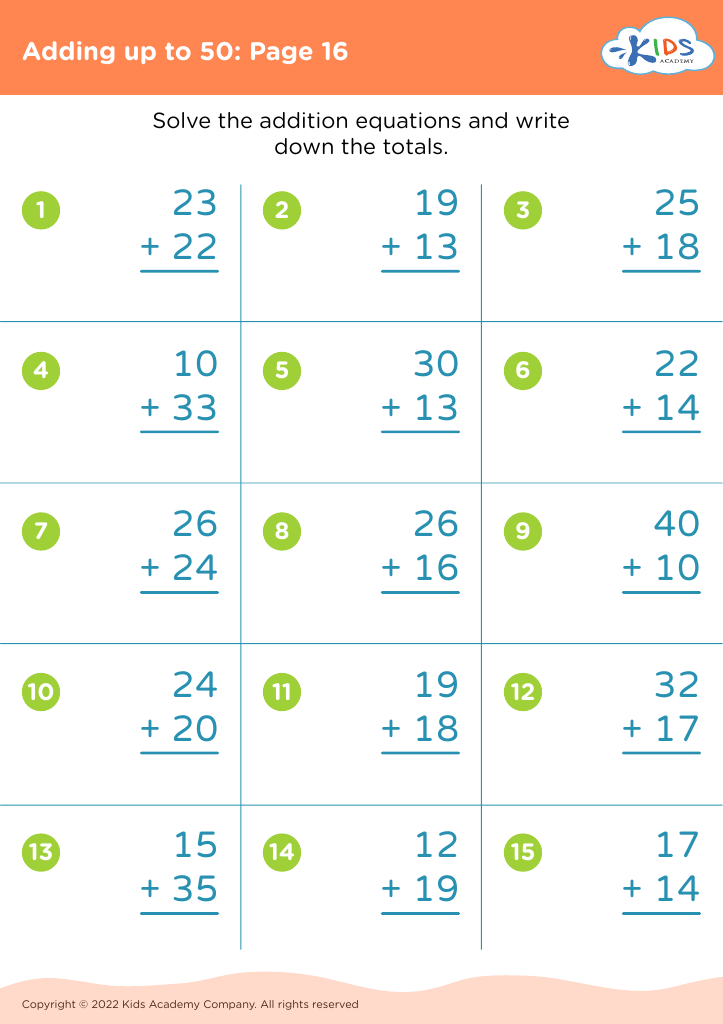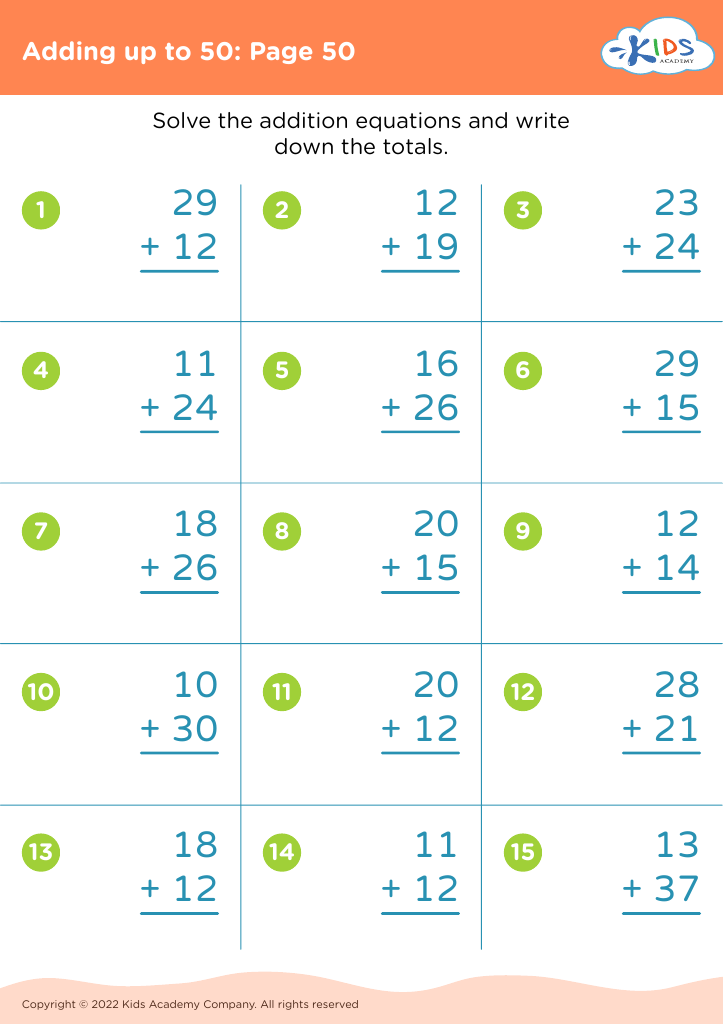Reading clocks Addition Worksheets for Ages 4-9
3 filtered results
-
From - To
Discover interactive Reading Clocks Addition Worksheets designed for children ages 4-9! Our engaging resources help young learners master both clocks and basic addition skills in a fun and approachable way. With colorful illustrations and real-life scenarios, kids will practice telling time while enhancing their math abilities. Each worksheet presents a unique challenge that promotes critical thinking and boosts confidence in early math skills. Ideal for classroom use or at-home learning, our worksheets are perfect for parents and teachers looking to provide a comprehensive education. Dive into a world where reading clocks meets addition, and watch your child's skills flourish!
Understanding and mastering reading clocks and basic addition is crucial for children aged 4-9, as it lays the foundation for essential life skills. For parents and teachers, fostering these skills helps promote critical thinking, problem-solving, and time management, all of which are vital as children grow.
Reading clocks encourages kids to develop an understanding of time, enabling them to manage their daily routines effectively. This skill can enhance their independence; for example, children can learn to prepare for school, schedules for homework, or playdates. Moreover, as they relate time to daily activities, they begin to grasp concepts like sequencing and planning, which are foundational to academic success.
On the other hand, basic addition forms a significant part of early mathematical development, building confidence in their numerical abilities. Through addition, children learn to categorize, compare, and solve problems—skills that are beneficial not just in math, but across various subjects.
Combining the skills of reading clocks and addition engages children's logical reasoning and cognitive skills, making these foundational concepts essential for their overall development. Thus, parents and teachers invested in holistic education should prioritize these areas to empower children with the tools they need for future learning and life success.




















